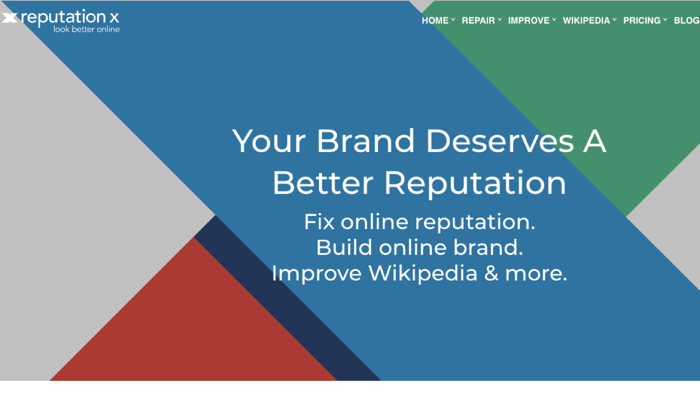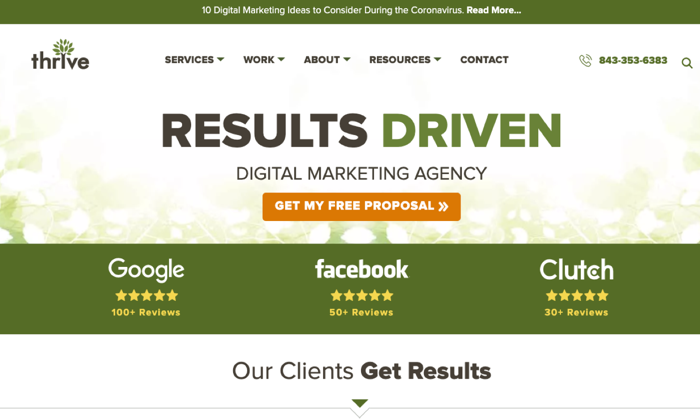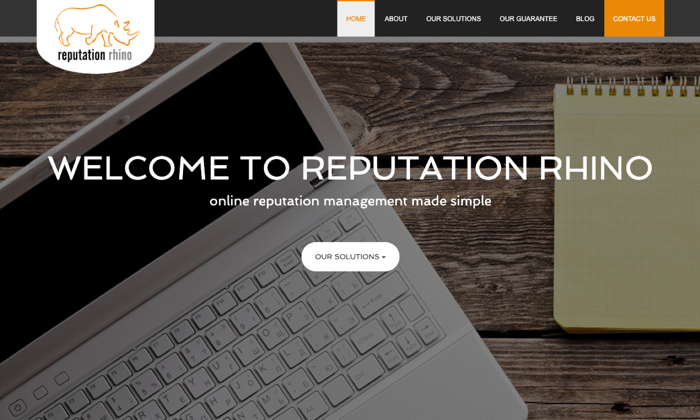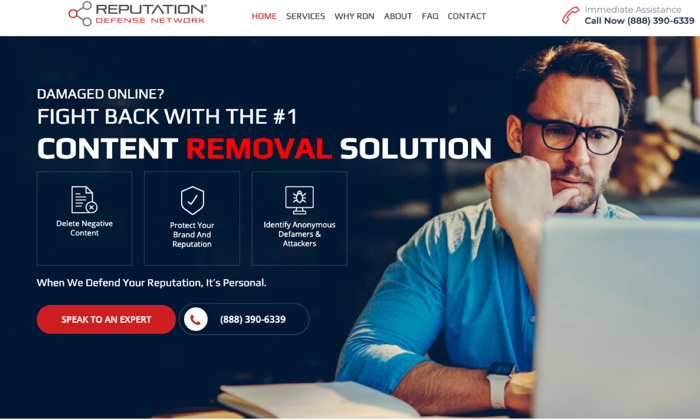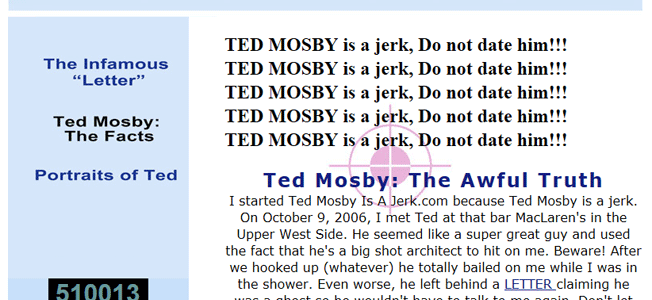
The Definitive Guide to Online Reputation Management

There are a lot of misconceptions about online reputation management. Some people think it’s just social media monitoring, while others believe it has something to do with public relations, and still others have no idea the impact it can have on sales.
In this guide, I’ll explain the role of online reputation management in today’s digital age, explain why it matters, and outline 10 tips for improving and protecting your brand’s online image.
Why Does Reputation Management Matter?
Just a few years ago, the internet was very different. Companies didn’t engage customers, they just sold (or tried to sell) to a passive audience People could not express their voice in a powerful way, and the overall communication landscape was very “top down.”
The situation has radically changed. Today, websites are no longer static brochures. User-generated content is a must. And regular interactions on social networks are vital to any business success.
No matter the size of your business, people are talking about you, including prospects, customers, clients, and their friends. They are tweeting about your latest product, leaving a comment on your blog, posting a Facebook update about their customer experience, and much more.
If you think you can skimp on reputation management, or if you think you can make it without taking into account people’s voices, opinions, and reviews, think again.
Today’s Brands Need to Be Transparent
One of the most important business commandments is “Be transparent.” Opening up to criticism and feedback seems beneficial for companies that embrace this new communication mode with their audience.
What does being “transparent” mean? Here are some examples:
- allowing employees to talk about products and services publicly
- establishing a 1-to-1 communication channel
- asking for feedback
- not hiding criticism, and addressing it publicly
Easier said than done! Most small and medium sized companies do not invest much on communication, and they struggle with this concept. As a result, their efforts usually are incorrect or inconsistent.
Being transparent is risky. But in the long run, not being transparent is riskier.
Online Reputation Management “Failures”
Being open does not come without a price. If you and your brand accept feedback, customer opinions, and so on, you also must be ready to face them promptly.
Consider these scenarios:
- What if your product/service sparks too much criticism?
- What if your employees are not social media savvy?
- What if your competitors take advantage of this?
These are just a few reasons you need to have a proper online reputation management plan in action before embarking on a transparency journey.
Here are three famous cases of reputation management failure in the digital era:
- Dark Horse Café received a tweet criticizing their lack of electrical outlets for laptops. Their response was something like: “We are in the coffee business, not the office business. We have plenty of outlets to do what we need.” Needless to say, defensive/aggressive behavior doesn’t work in the online world. Many blogs reported the fact as a negative public relations case.
- Nestlé received negative comments about their environmental practices a few years ago, and they did not address them. People started becoming aggressive and posted altered versions of the Nestlé logo, forcing the company to close its public page. Takeaway? Do not pretend people are not talking, and address criticism as soon as possible.
- Amy’s Baking Company fought fire with fire against a one-star internet review. Their insults against the reviewer eventually were picked up by the local news. Negative attention is not good publicity.
The lesson here? Pay attention to your online reputation and respond–kindly–to poor reviews. Don’t let your ego get in the way of being professional. Remember, you aren’t just responding to the person who left a review, you are showing everyone else online who your brand is.
The Key to Online Reputation Management: Listen To What People Are Saying About Your Brand </p>
What are people saying about you? Good online reputation management is not just reacting well to what people say about you, your brand, or your products and services, but also about whether to react at all and, if so, when.
Sometimes a reaction is not necessary, and sometimes a reaction that is too late can cost you millions.
A proactive approach to the matter consists of monitoring your public reputation regularly, and not just when you come to know about a specific event to deal with.
How do you do this? By using social media monitoring tools that keep an ear on what people are saying about your brand.
Social media monitoring allows companies to gather public online content (from blog posts to tweets, from online reviews to Facebook updates), process it, and see whether something negative or positive is being said affecting their reputation.
Social media monitoring can be both DIY (Google Alert is an example of a free web monitoring tool accessible to anyone) and professional, depending on the size of the business involved.
Watch for Online Reputation Bombs
In the online reputation management scenario, companies should be aware of two types of harmful content. One is represented by complaints on social networks. They need to be addressed properly, but unless your company has serious problems, they do not pose a real challenge to your business.
The other is what I define as “online reputation bombs,” which affect your reputation and sales long term and can severely damage a business. They are very powerful because, unlike social network content, they are prominent in search engine results.
What if someone Googles your brand name and finds defamatory content? Let’s see what they are:
- Negative Reviews: Review sites allow users to express their opinion on your brand. Did they like your service/product? Would they recommend it? Negative content can affect your sales, and addressing the criticism on the site may not be enough. Websites like Ripoff Report and Pissed Consumer provide the perfect platform for this kind of negative content.
- Hate Sites: Some people go beyond simple negative reviews and create ad hoc websites with their opinions, some of them containing illegal content. So-called “hate sites” sometimes address companies and public figures with insults and false information. Needless to say, a search result like “The truth about NAMEOFYOURCOMPANY” or “NAME scam/rip off” will make your potential customers run away!
- Negative Media Coverage: Phineas T. Barnum used to say “There’s no such thing as bad publicity.” That may be true for controversial public figures, but unfavorable TV, print, and online media coverage negatively impact companies and brands.
What do you do if your business is the victim of a smear campaign?
What To Do if Your Company is Subjected to an Online Reputation Smear Campaign
The first thing most companies wonder is “Can we call the cops?” I get it; being unfairly targeted feels illegal. But in most cases, online comments are not a legal matter.
Article 19 of The Universal Declaration of Human Rights states that:
“Everyone has the right to freedom of opinion and expression; this right includes freedom to hold opinions without interference and to seek, receive and impart information and ideas through any media and regardless of frontiers.”
Everyone has the right to express their voice about your brand. There are, however, certain boundaries that need to be respected. Some of the negative content online actually is illegal. Why?
- It uses defamatory language
- It reports false information
- It is aimed at damaging the company’s reputation
How do you react to all of this? How do you defend yourself or your company from this kind of illegal behavior?
Depending on the scope of the problem, several paths can be pursued in order to restore your online reputation:
- Aggressive SEO: Ranking on pages one or two of Google for your industry and brand name is one of the best ways to push down bad publicity. The first thing that you or your online reputation management company should do is devise a search marketing strategy that increases the ranking of positive content, owned by either you or third parties. The search engine game is too important to be ignored, and it is the first step in restoring your image.
- Review Removal: Did a user claim something false about your company? Is that review clearly aimed at destroying your reputation rather than providing feedback? Does it contain improper language? Legal liaison and speed of reaction will make it possible to remove the negative review.
- Online Investigations: In case of serious attacks on your brand image, it may be necessary to hire skilled online analysts to investigate untraceable threats and attackers via email tracing, data cross-indexing, and other information collection techniques. Cyber investigations are the definitive path to get to the bottom of the most difficult reputation management cases.
These strategies are only required in the most extreme cases. Most businesses can manage their online reputation by following these 10 tips.
10 Online Reputation Management Tips
Calling it “online reputation” really is redundant. Your online reputation is your reputation. In the digital era, nothing protects your brand from criticism. This is good from a freedom of speech perspective; bad if your company has been defamed and attacked.
To help you stay on top of your reputation, here are ten practical tips that sum up what we have covered in this guide. The world of brand reputation will change in the coming years, but following these simple tips will help you keep your name.
1. Become Well Respected
Trust is a perishable asset and it is hard to gain. Working to build respect work is more important than any other online reputation management commandment.
2. Be Radically Transparent
After years of hiding critics, McDonald’s publicly forced egg suppliers to raise hens’ living standards according to the People for the Ethical Treatment of Animals request.
Being transparent about shows you care about your customers and are willing to make changes when things go wrong.
3. Monitor What People Say About Your Brand
In addition to all the reasons to monitor your online reputation, social media monitoring also can increase sales. These days, lots of people ask questions via Twitter and Facebook because they evaluate whether or not they should buy from you. Showing you are responsive makes your brand look reliable.
4. React Quickly and Politely
In case of a customer complaint via Twitter, for example, a prompt and simple “Thanks for making us aware of the problem. We are working on it and will get back to you as soon as possible.” is better than a late reply with more information.
5. Address Criticism
In 2009, Whole Foods CEO John Mackey wrote an op-ed on Obama healthcare reform, which caused a controversy among WF customers. Two days later, the company published a written statement recognizing there were “many opinions on this issue, including inside our own company” and invited people to share their opinion about the article and health care changes. They didn’t just ignore it and hope it would go away; they addressed the issue head-on.
Responding to negative feedback shows you care and are working hard to fix any issues.
6. Pay Attention to Your Google Results
First impressions count, and we do judge many books by their cover. If the words “scam” and “rip off” are associated with your brand, then that is something you should worry about.
A strong SEO strategy is your best defense against negative press, reviews, and false reports.
7. Learn From Your Detractors
Criticism can be the chance to learn more about your audience and craft a better message in the future. Motrin’s controversial “baby-wearing moms” commercial sparked a lot of criticism. It did not come from competitors or illegitimate attackers, but from people in Motrin’s target audience who felt offended by their promotional content.
If the online responses to your brand are legitimate, it might be time to reconsider your marketing strategy or responses.
8. Attack Your Illegitimate Attackers
Sometimes we simply have to fight illegal behavior. In 2009, Domino’s Pizza employees who posted disgusting videos of themselves playing with food were fired and arrested. Another example is people who post false information on the internet. Sometimes, if you don’t sue them, they might do it again.
9. Learn From Your Mistakes
CORRECTION: @jmbergoglio is not the account of Jorge Mario Bergoglio. Our apologies.
— Boston.com News (@BostonDotCom) March 13, 2013
Sony certainly learned a reputation management lesson back in 2005. The company placed copy protection (XCD) on its CDs which created computer vulnerabilities that malware could exploit. Instead of being upfront about their mistake, Sony stonewalled criticism and lost millions in class-action lawsuits.
If you’ve made a misstep, own up to it and take action to fix the issue.
10. Ask For Help If Necessary
If your online reputation management efforts are not enough to protect or restore your brand image, you have the choice to request help from a professional. Working with an online marketing company or reputation management firm may be your only resort.
Time needed: 5 minutes.
Here are 10 tips to protect your online reputation management
- Become Well Respected
Building and maintaining trust in your business can protect you from online smear campaigns.
- Be Radically Transparent
Share the good — and the bad– about your company to build trust.
- Monitor What People Say About Your Brand
You can’t protect your reputation if you don’t know what people are saying.
- React Quickly and Politely
A prompt “Thanks for making us aware of the problem. We are working on it and will get back to you as soon as possible.” is better than a late reply with more information.
- Address Criticism
Don’t ignore criticism, responding quickly shows you care about your customers.
- Pay Attention to Your Google Results
If the words “scam” or “ripoff” are associated with your brand, it is time to take action. A strong SEO strategy can protect your brand by pushing down negative feedback.
- Learn From Your Detractors
Criticism can be the chance to learn more about your audience and craft a better message in the future.
- . Attack Your Illegitimate Attacker
Sometimes, if you don’t sue or push back against detractors, they might do it again.
- Learn From Your Mistakes
If you’ve made a misstep, own up to it and take action to fix the issue.
- Ask For Help If Necessary
If your online reputation management efforts are not enough to protect or restore your brand image, you have the choice to request help from a professional.
Conclusion
Managing your online reputation starts with listening to what your customers have to say and finding ways to connect with them. Replying to online criticism is crucial and building an SEO strategy is crucial, but it might not be enough to protect your brand from smear campaigns. In those cases, it might be time to get professional help.
What do you do to protect your online reputation?







